6 Store-Bought Hot Dogs That Don’t Use 100% Pure Beef

Hot dogs can be a tasty indulgence at a cookout or sporting event. Many Americans seem to crave them more in the spring and summer. While 100% beef hot dogs can be delicious and give you the peace of mind that you know what you’re eating, many hot dogs you’ll find on grocery store shelves are actually a mixture of trimmings from beef and pork. And then there are other dogs that are made from mechanically separated chicken and turkey, which surprisingly are not necessarily a healthier alternative to red meat in this case.
If a hot dog is not labeled 100%, we can assume a variety of other things might be in it, says Amy Shapiro, MS, RD, founder and director of Real Nutrition in New York City. Those items may include pork, mechanically separated chicken, animal by-products, corn syrup, high sodium content, nitrates, fillers and artificial preservatives.
Shapiro says that 100% beef dogs, preferably ones that are grass-fed, are generally healthier than ones that contain a mix of beef and pork because they will likely be free of by-products that come from unknown sources and also free of “nitrates, artificial additives and preservatives that have been shown to be carcinogenic.”
She also says to look for dogs that are lower in sodium content and flavored with spices instead of artificial flavors and sweeteners. “Even though it is still not the best choice of protein, the 100% pure beef alternative is a better and healthier option compared to other store-bought hot dogs,” she says.
If you’re gearing up for your next barbecue, remember that hot dogs should be a “sometimes food” since they are generally high in saturated fat, sodium, added sugar and artificial additives, especially for the store-bought ones that are not 100% pure beef.
“High saturated fat content can raise bad LDL cholesterol levels and increase the risk of cardiovascular diseases,” says Shapiro. “The high caloric content from fat can also lead to weight gain and increase risks of chronic diseases. Long-term consumption of high sodium is associated with increased risk of high blood pressure, heart diseases and stroke, because your body and kidney are working harder to hold onto water to help dilute excess sodium in blood. Increased blood volume leads to more pressure on blood vessels and extra work for the heart.”
Read on to find out what’s inside several popular hot dogs that don’t use 100% pure beef, which you may want to avoid the next time you hit the supermarket.
Gwaltney Original Chicken Hot Dogs
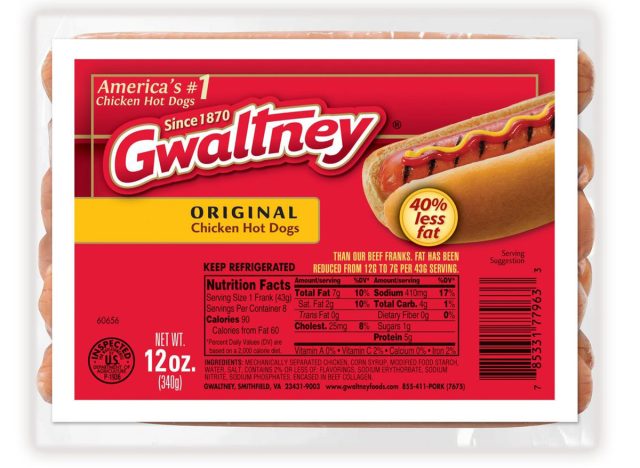
While these chicken dogs are lower in fat and sodium than many other franks on the shelf, they are made with “mechanically separated chicken,” which means you’re likely eating fat, skin and connective tissue. They also contain corn syrup, which nutritionists say can increase your appetite and lead to weight gain.
Ball Park Classic Franks
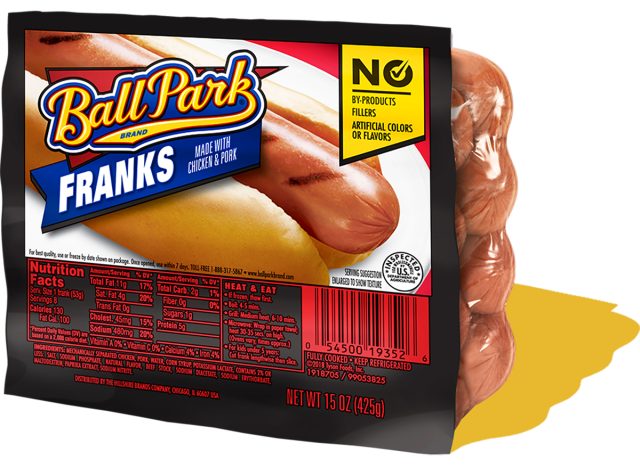
These hot dogs are a cookout favorite but they contain mechanically separated chicken, which means you’re not getting the best part of the bird, in addition to pork. Although they contain no by products, no fillers, no artificial colorings or flavors, they are high in sodium: 480 milligrams, in fact. “Shriveled, dry, odd consistency and taste,” wrote one reviewer.
Oscar Meyer Original Uncured Wieners
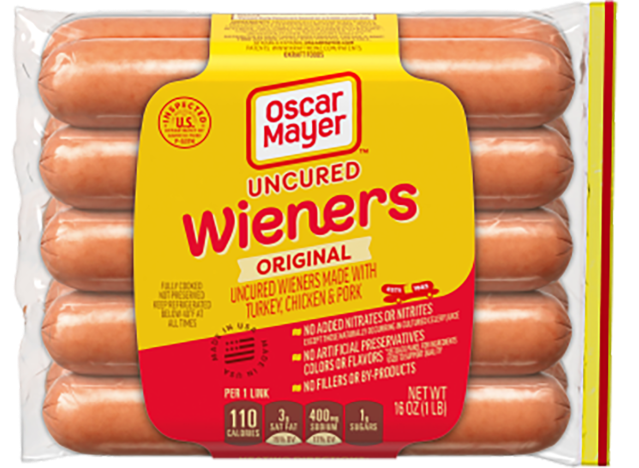
Oscar Meyer fans may be surprised to learn that these wieners are made from mechanically separated turkey, mechanically separated chicken, and pork. The problem here is that with mechanically separated meats, you’re no doubt getting parts of those chickens and turkeys you’d otherwise never think of consuming. These dogs have no added nitrates or artificial preservatives or by-products but they contain 10 grams of fat and 400 milligrams of sodium per serving.
Empire Kosher Classic Turkey Franks
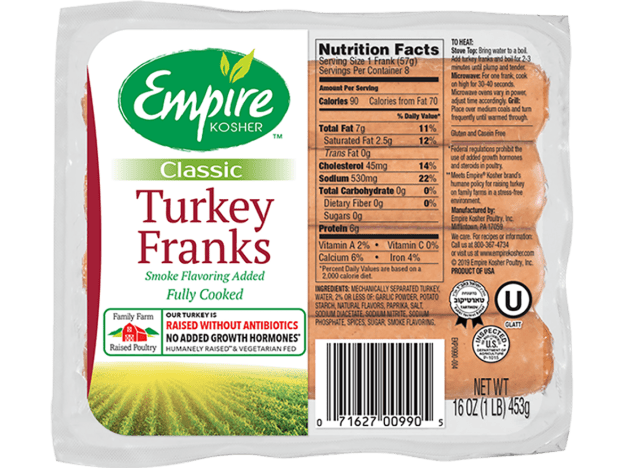
White meat isn’t always better than 100% beef. The mechanically separated turkey used to make these hot dogs should give you pause before putting them in your mouth. They contain sodium nitrate, a preservative associated with an increased risk of type 2 diabetes. They’re also loaded with sodium (530 milligrams per serving).
Kayem Beef & Pork Hot Dogs
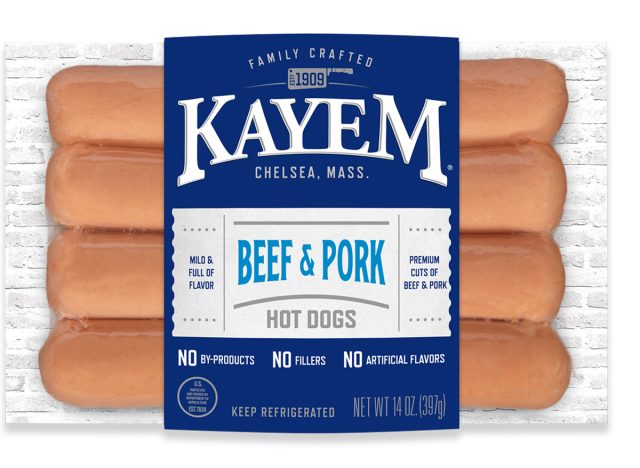
Know as a “New Englander’s favorite” these combo meat dogs are made with “premium cuts” of both pork and beef. The drawbacks here are that they’re high in fat (13 grams) and also contain corn syrup and sodium nitrate, which are no-no’s when you’re trying to eat right.
Bar S Classic Franks
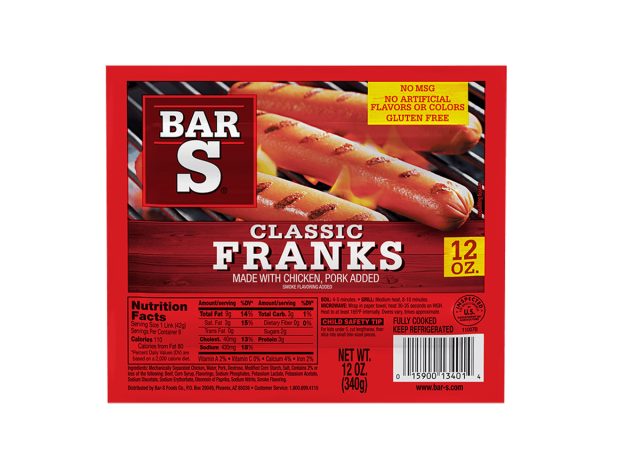
For a hot dog that’s advertised as containing no MSG, no artificial flavors or colors, these are still suspect given the fact that the label shows they contain less than 2% beef. These franks also contain pork and mechanically separated chicken, which according to the USDA, means meat that has a “cake-batter texture.” Pass these up for a healthier Do Good Dog, if given the choice.









